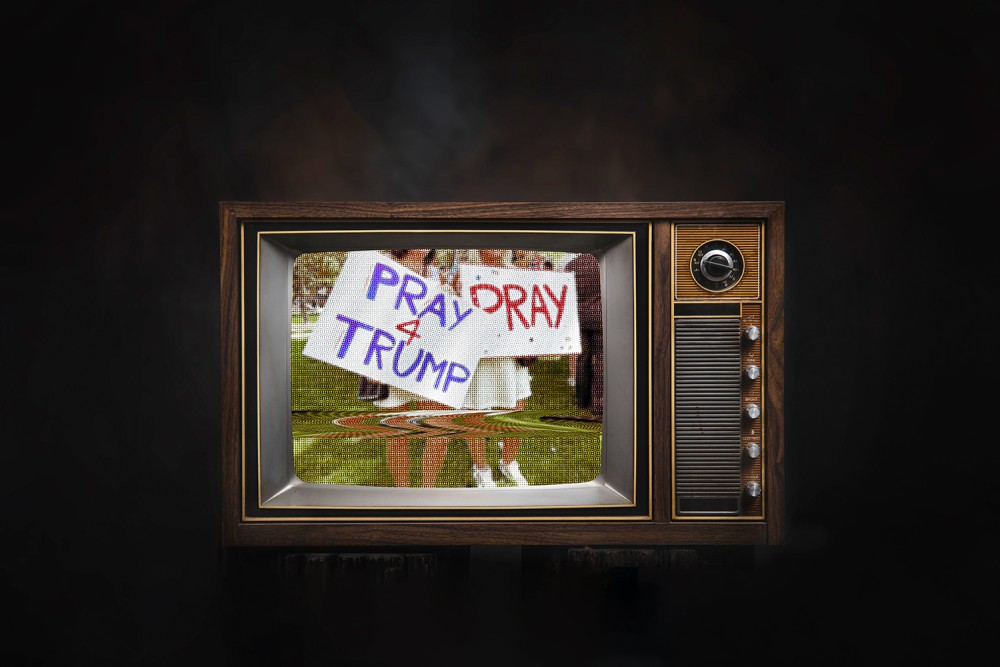Empathy for the demagogue
On July 13, Trump’s human vulnerability was palpable. The threat he poses to democracy remained as real as ever.

Century illustration (Source images: Getty and Voice of America)
On July 12, Donald Trump was a demagogue, a felon, a public figure with an immense capacity for dishonesty and vengeful grievance, and a former president whose administration sowed graft and cruelty and chaos with abandon. On July 13, he was a frightened and physically wounded human being who narrowly evaded death at an assassin’s hand. Even as he raised his fist in defiance, his vulnerability was palpable.
In the days since the shooting at a campaign event outside Pittsburgh—which killed one audience member and critically injured two others—Trump has continued to be all the things he was before. The threat he poses to democracy remains as real as ever.
In his email newsletter, journalist Anand Giridharadas criticizes Democratic politicians for their “unity statements” following the assassination attempt. “There will be no jabs” in such statements, he writes, “no stridency, maybe not even any truth.” After all, “we can’t all get along if we’re busy pointing over there and yelling, ‘That man is an existential threat to democracy!’ It’s mean.” Giridharadas is clear that it is essential to reject political violence in no uncertain terms. But “it is possible to wish a man a speedy recovery” while also “insist[ing] on the urgency of doing every peaceful thing humanly possible to prevent him from driving the country even further down this road.”




